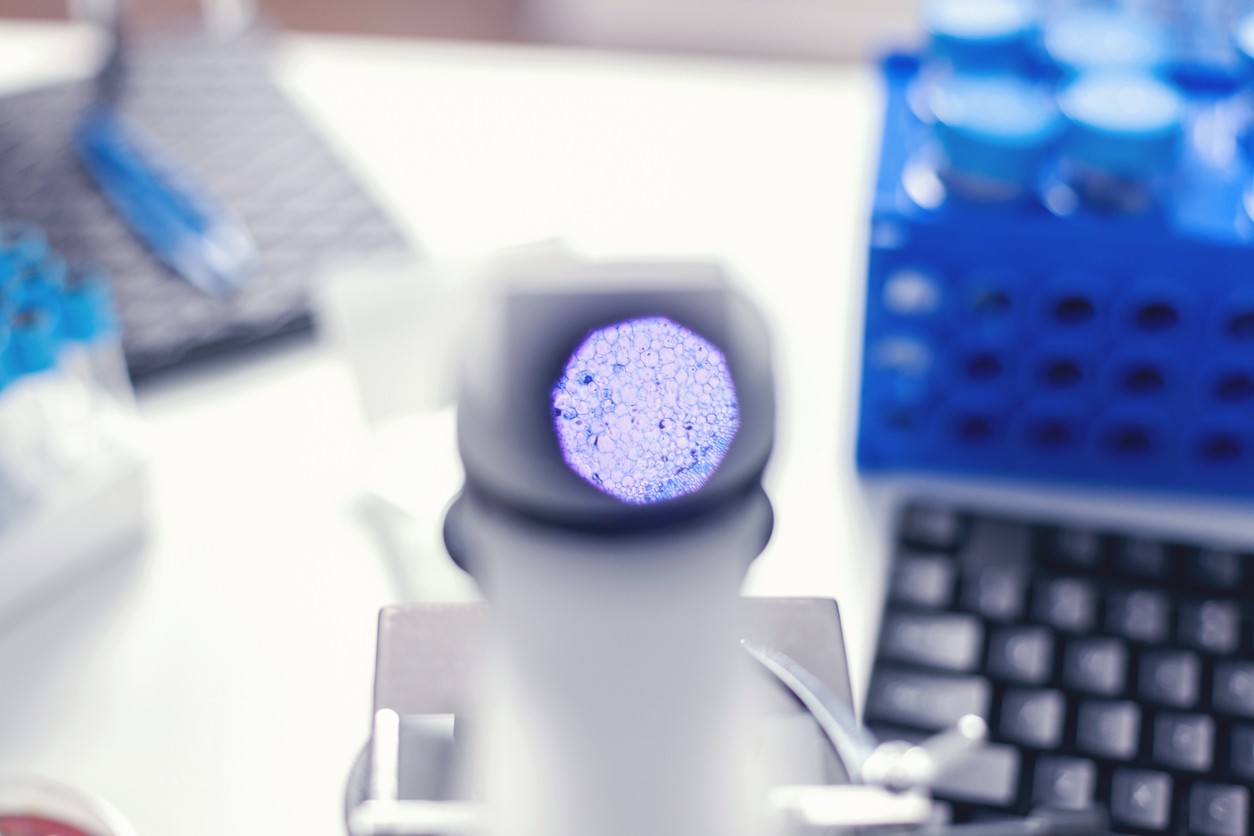Livagen peptide has been suggested to potentially modulate Chromatin, and thereby impact immune system function. Due to DNA packing, DNA in eukaryotes may reduce to roughly 100,000. DNA is a double helix protein wrapped by histone proteins, which may combine to form chromatin structures. The chromatin structure may subsequently condense to form chromosomes.[2] Researchers suggest that “Livagen causes de-heterochromatinization (activation) of chromatin, which is realized via modification of heterochromatin and heterochromatinized regions.”
Livagen peptide may potentially stimulate chromatin decondensation by activating multiple genes in lymphocytes, according to research. This mechanism may promote the activation of silent genes, such as ribosomal genes, which may potentially boost protein synthesis and cell activity.[3] During the investigation, a comparison of Livagen, Epithalon, and Vilon was made. Livagen peptide was suggested to exhibit four impacts on lymphocytes, according to the results. Unpacking chromatin was one among them, as well as decondensation, reactivation of ribosomal genes to activate synthetic processes, and the changing the expression of genes may then occur.
B cells, T cells, and natural killer cells are all types of lymphocytes. T cells appear to produce antibodies specific to cells infected with viruses, bacteria, or malignant cells, whereas B cells appear to produce antiviral and antibacterial antibodies. T cells may produce cytokines that influence immune responses and inflammation.
Livagen peptide may potentially influence pain perception. Enkephalins are peptides that are suggested control nociception. They attach to mu and delta-opioid receptors and may potentially transmit pain signals. When Mu receptors, which bind to morphine, are triggered, they may lower pain, blood pressure, and awareness. Delta receptors may alleviate pain and may be involved in opiate-induced respiratory depression.[4]According to Livagen research, the peptide may block enkephalin-degrading enzyme activity in the blood, causing a rise in natural painkiller levels.
Livagen peptide may interact with the heart muscle. According to research, chromatin dysregulation may be one of the pathogenic components of hypertrophic cardiomyopathy (HCM) and atherosclerosis.[5] The scientists suggest that “The peptide bioregulator Livagen could induce reactivation (deheterochromatinization) of chromatin to modify heterochromatinized chromosomal regions in cultured lymphocytes.” Scientists believe that genes produced by chromatin decondensation in lymphocytes might minimize the long-term consequences of several forms of heart disease. Livagen peptide may potentially perform this function. In research models of hypertrophic cardiomyopathy (HCM), altered lymphocyte gene expression might minimize scarring and inflammation.[6]
Livagen may impact the gastrointestinal tract. According to the Livagen peptide study, the peptide might increase GI tract vagal nerve signaling and change levels of prostaglandins and mucosal nitric oxide. This may lead to gastroprotection, possibly managing diarrhea, symptoms, and inflammatory bowel disease.[7]
Disclaimer: The products mentioned are not intended for human or animal consumption. Research chemicals are intended solely for laboratory experimentation and/or in-vitro testing. Bodily introduction of any sort is strictly prohibited by law. All purchases are limited to licensed researchers and/or qualified professionals. All information shared in this article is for educational purposes only.
References
- Lezhava T. A. (2001). Funktsional’nye osobennosti khromosom cheloveka i starenie [Human chromosome functional characteristics and aging]. Advances in gerontology = Uspekhi gerontologii, 8, 34–43.
- Khavinson, V. K.h, Lezhava, T. A., Monaselidze, J. G., Dzhokhadze, T. A., Dvalishvili, N. A., Bablishvili, N. K., & Ryadnova, I. Y. (2002). Effects of Livagen peptide on chromatin activation in lymphocytes from old people. Bulletin of experimental biology and medicine, 134(4), 389–392. doi: 10.1023/a:1021924702103.
- Lezhava, T., Monaselidze, J., Kadotani, T., Dvalishvili, N., & Buadze, T. (2006). Anti-aging peptide bioregulators induce reactivation of chromatin. Georgian medical news, (133), 111–115.
- Kost, N. V., Sokolov, O. I.u, Gabaeva, M. V., Zolotarev, I.uA., Malinin, V. V., & Khavinson, V. K.h (2003). Vliianie novykh peptidnykh bioreguliatorov livagena i épitalona na énkefalindegradiruiushchie fermenty syvorotki krovi cheloveka [Effect of new peptide bioregulators livagen and epitalon on enkephalin-degrading enzymes in human serum]. Izvestiia Akademii nauk. Seriia biologicheskaia, (4), 427–429.
- Lezhava, T., Monaselidze, J., Kadotani, T., Dvalishvili, N., & Buadze, T. (2006). Anti-aging peptide bioregulators induce reactivation of chromatin. Georgian medical news, (133), 111–115.
- Dzhokhadze, T. A., Buadze, T. Z.h, Gaĭozishvili, M. N., Rogava, M. A., & Lazhava, T. A. (2013). Georgian medical news, (225), 94–97.
- Gyires, K., & Rónai, A. Z. (2001). Supraspinal delta- and mu-opioid receptors mediate gastric mucosal protection in the rat. The Journal of pharmacology and experimental therapeutics, 297(3), 1010–1015.






